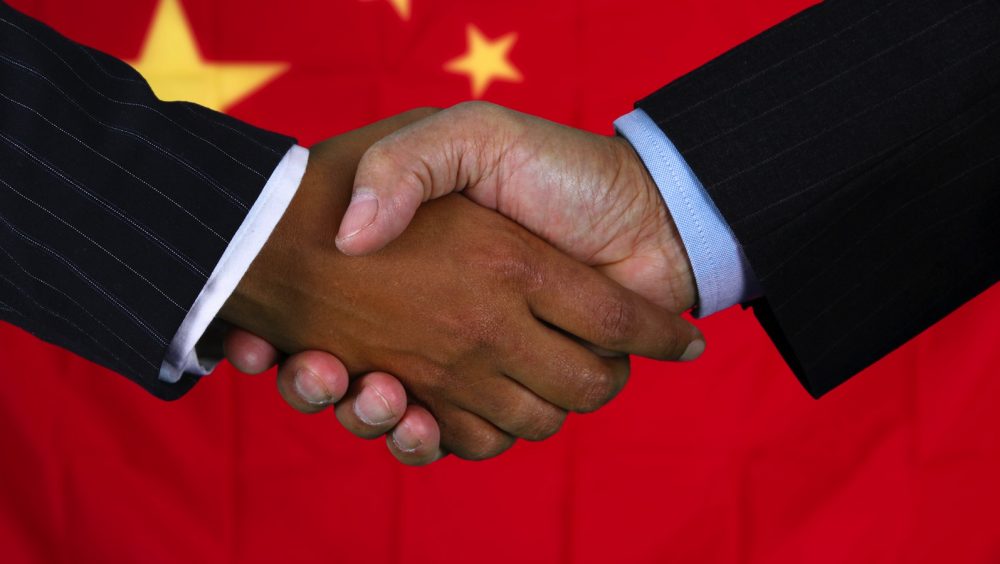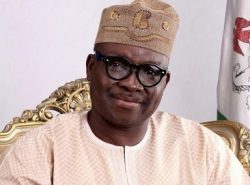Should the United States and other countries in the West fear China’s growing influence on the African continent? For months, top US national security officials have been talking about the reemergence of what they describe as a great power competition, calling out China and Russia as the two countries doing the most to counter the United States in Africa.
U.S officials say the efforts by Beijing and Moscow are both regional and global, with both pursuing strategies to deny the U.S. access to conflict zones in times of crisis and to commercial markets in times of peace.
And in Africa, both are trying to portray themselves as viable, if not essential, alternatives to the United States.
In the West, China’s investment into Africa has often been painted in the light of neocolonialism, or of exploitation. Certainly, aspects and incidents among China’s wide involvement can be coloured in that way.
China’s trade with Africa topped $160 billion in 2015, ranking as far and away the largest trade partner with the continent. In 2014, China signed more than $70 billion in infrastructure contracts in the continent, and Chinese banks now provide more loans to African nations than does the World Bank.
While there is no question that China and Chinese companies are changing the way African politicians seek aid and investment, the relationship between the two sides is far more complicated than simple narratives.
China, unsurprisingly, is looking out for China, seeking opportunity wherever it can find it.
In a new report by a former U.S Intelligence Chief, Matthew Page, many of the key players in Nigeria’s illegal logging, mining, and fishing operations are Chinese. These crypto-industries contribute to insecurity, instability, and socioeconomic degradation in areas most vulnerable to conflict, such as the Niger Delta and the Middle belt.
The report titled “The Intersection of China’s Commercial Interests and Nigeria’s Conflict Landscape,” released last week during the successful 2018 Beijing Summit of the Forum on China-Africa Cooperation (FOCAC), said that Chinese businesspeople operating in Nigeria routinely dispense bribes to facilitate their activities and protect their investments.
According to the report, investigation by the Environment Investigation Agency, revealed that, “Chinese timber traders use Nigerian middlemen to clandestinely harvest millions of dollars worth of rosewood—an endangered hardwood species—each year. Fueled by a demand for luxury furniture in China, illegal rose- wood exports are facilitated by corrupt Nigerian officials paid to forge official documents or just to turn a blind eye to the trade. Nigerian rosewood exports began increasing exponen- tially in 2013. By 2015, Nigeria had become China’s largest source of rosewood, accounting for 45 percent of total imports.”
China’s involvement in Africa is also clearly defined by its own interests, not altruism. However, what this criticism fails to address is how China has become so successful in Africa.
The answer to this question lies with how China has essentially treated Africa not as a continent in need of saving or lecturing, but as partners in a long-term business deal. Exhibiting no self-appointed missionary zeal, China has approached African states with an amoral and persuasive message based on mutual benefit.
China treats Africa with far more dignity than Western governments and NGOs, who view most Africans as hopeless. Instead, China, strikes business deals that exchange loans, infrastructure aid and goods in exchange for African commodities, political support and access into its vast and emerging markets.
President Jinping Xi, at the closing ceremony of the FOCAC summit said , ” All members agreed to jointly build a China-Africa community with a shared future that assumes joint responsibility, pursues win-win cooperation, delivers happiness for all, enjoys common cultural prosperity, ensures common security, and promotes harmony between man and nature, which will set a model for the building of a community with a shared future for humanity.
The fact that Western media consistently condemn China’s attitude towards dealing with African government as proof that this is a disservice to Africa’s peoples actually demonstrates a certain lack of understanding that the West has of the worldview of many Africans.
A former governor of a Southern State in Nigeria once told me in a discussion that with the Chinese, projects gets executed very quickly than with western nations. He said modalities and paper work alone takes years while trying to work with most western countries.
With Chinese yuan and Indian rupees increasingly finding their way into Africa’s economies, Western powers are worried that they are losing influence in the resource-rich continent.
China overtook the United States as Africa’s biggest trade partner in 2009, according to OECD figures, whereas in 2000 the United States’ trade with Africa was three times that of China’s.
The United States and Western countries must change their strategies on the continent and emphasize the need for collaboration.
“It’s important that we’re there, that we’re present and that the African people see our commitment,” U.S. Africa Command’s Gen. Thomas Waldhauser told the U.S House Armed Services Committee, earlier this year.

The West has reasons to be rattled as Chinese – Africa relationship described by President Xi as unmatched in history put African countries in a stronger bargaining position.
In 2013, Sanusi Lamido Sanusi, then-governor of Nigeria’s Central Bank, wrote “we must see China for what it is: a competitor.” He added: “Africa must recognise that China—like the U.S., Russia, Britain, Brazil and the rest—is in Africa not for African interests but its own.”
African workers have also begun to fault Chinese companies for unfair labor practices, including disputes over wages and working conditions. The resentment is building up over sub-standard goods, while the Chinese continue to assure relations with Africa is on a distinctive path of win-win cooperation.
Analysts say African countries are going into debt trap with the China, citing the takeover of Sri Lanka’s port by the Chinese to pay off a debt.
Sri Lanka formally handed control of a strategic port on its southern coast to China as part of a 99-year lease agreement.
Under a US$1.1 billion deal that the Sri Lankan political opposition and trade unions have called a “sell-out” move, Chinese firms now hold a 70 per cent stake in Hambantota port.
The $1.3bn port was built with loans from a Chinese state-owned bank and opened in 2010. But the Sri Lankan government has struggled to repay the debt, with the project incurring heavy losses. Along with loans taken out for other infrastructure development projects, Colombo now owes China a total of $8bn.
In response to western criticism, President Xi on Friday said, “The international community should respect African countries’ sovereignty, listen to Africa’s voice, take Africa’s stance seriously, and deliver on commitments made to the continent.
Opinion surveys have shown that the majority of respondents in African countries view China favorably, both in terms of its influence as well as its contributions to the continent’s development. On average, 63 percent of Africans view China’s economic and political influence as somewhat or very positive, according to a 2016 poll conducted in thirty-six countries by Afrobarometer, a Pan-African research network. Many African leaders have lauded the benefits of Chinese investment to support growth in their countries.
China has grown from being a relatively small investor in the continent to becoming Africa’s largest economic partner.
Investment in Africa has been structured around Chinese ownership, with roughly 90% of firms either majority controlled or owned outright by Chinese nationals. There are estimated to be over 10,000 Chinese firms in Africa that have created work for several million Africans.
This economic stimulus continues to have significant economic impact in communities riddled with historic economic disparities.
The West today has the opportunity to renew its relationship with Africa and need not be afraid of Chinese presence.
























Leave a comment